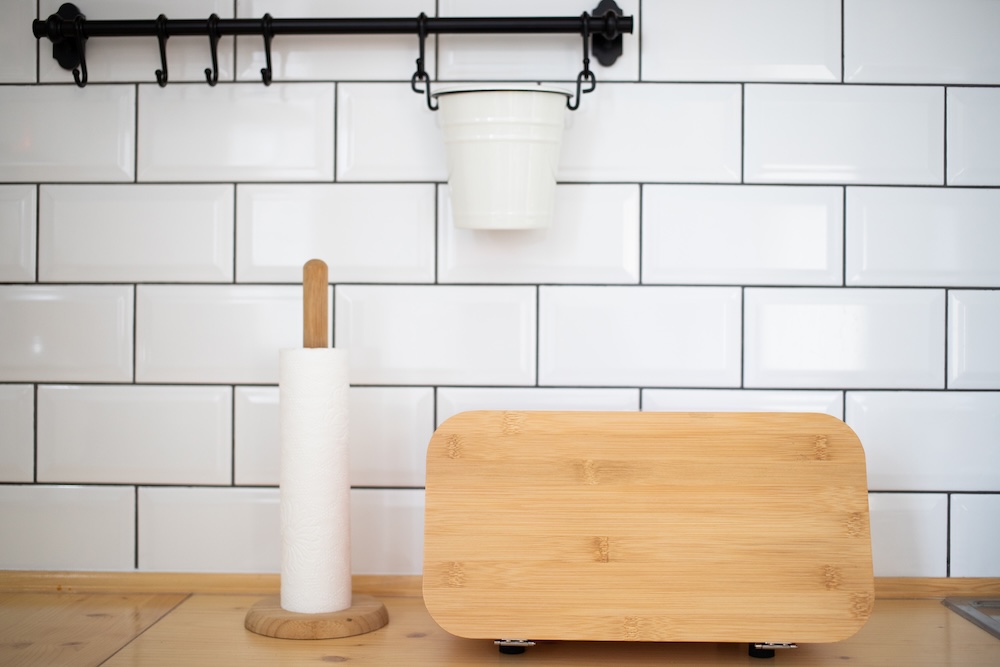Why Swap Paper Towels?
Paper towels feel harmless — quick, convenient, disposable. But the reality is that Americans use over 13 billion pounds of paper towels every year, which means cutting down millions of trees and wasting billions of gallons of water to make products we throw away after seconds of use.
Earthly Co. is tackling this overlooked problem with a simple, sustainable solution: reusable paper towels made to last, designed to replace dozens of disposable rolls, and rooted in the belief that small, everyday swaps ripple into big change.
A Smarter Swap: Reusable Paper Towels
Earthly Co.’s reusable towels are made from 100% cotton flannel, a natural fiber known for durability, softness, and absorbency. Unlike disposables, these towels can be washed and reused hundreds of times, cutting waste while saving households money.
- One pack replaces 80+ rolls of single-use paper towels.
- Machine-washable and compostable, ensuring a full lifecycle with no landfill legacy.
- Multipurpose: ideal as napkins, cleaning cloths, or even tissues.
This isn’t just about cleaning up spills — it’s about cleaning up our consumption habits.
Why It Matters
Cutting Waste at the Source
Paper towel waste is rarely recyclable (fibers are too short and often contaminated after use). By reusing, you prevent piles of disposable fibers from heading straight to landfills.
Conserving Resources
Producing paper towels requires enormous water and energy inputs — in fact, just one ton of paper towels requires 17 trees and 20,000 gallons of water. Replacing them with washable cloth eliminates that demand.
Closing the Loop
Because Earthly Co.’s towels are made from natural cotton, they can be composted at end of life, returning nutrients to the soil instead of polluting it.
Design That Works
Earthly Co. has double-brushed its cotton flannel, making the towels extra absorbent and soft on both sides. This increases surface area for soaking up spills while keeping them comfortable for everyday use.
Beyond function, their towels come in playful, stylish designs that make sustainability feel good in the home. They’re packaged in recyclable boxes, making them a thoughtful eco-friendly gift as well as a practical household staple.
Small Change, Big Impact
Switching to reusable towels may sound small, but multiply the impact:
- 1 household switching = 80+ rolls saved.
- 1 neighborhood = thousands of rolls avoided.
- 1 city = millions of gallons of water preserved.
That’s the ripple effect Earthly Co. champions — small, repeatable choices that add up across communities.
The Bigger Picture: Why It’s About More Than Paper Towels
The environmental impact of disposables is about more than landfill waste:
- Deforestation accelerates climate change and reduces wildlife habitats.
- Plastic packaging around conventional rolls adds another layer of pollution.
- Overconsumption normalizes a throwaway culture that drains resources.
Reusable solutions like Earthly Co.’s towels challenge this mindset. They prove that sustainability can be practical, attractive, and affordable — not just aspirational.
FAQs
Are reusable paper towels sanitary?
Yes. Cotton flannel can be machine-washed with regular laundry. A quick hot wash with detergent restores them for reuse.
Do they actually replace paper towels for everything?
For most tasks, yes — wiping counters, drying hands, cleaning up spills. For greasy messes, some people still prefer compostable paper options, but reuse handles 90% of needs.
How long do they last?
With proper care, reusable towels can last years, far outliving the cost and waste of constant paper towel purchases.
Final Thoughts
Earthly Co. is more than a brand — it’s a reminder that sustainability starts at home, with the choices we make daily. A simple swap from paper to reusable towels saves trees, water, money, and landfill space, all while making homes brighter and greener.
Small actions don’t solve climate change overnight, but they shift culture, normalize responsibility, and prove that another way is possible.
If we can start by rethinking something as ordinary as paper towels, what else might we be able to change?








